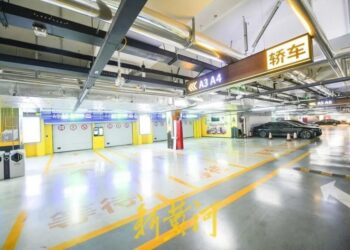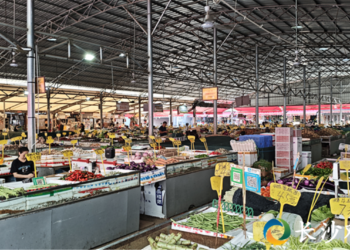JEDDAH – In a significant diplomatic development that could mark a turning point for regional peace, Saudi Crown Prince and Prime Minister Mohammed bin Salman held an important meeting with Iranian Foreign Minister Abbas Araqchi at Al-Salam Palace in Jeddah. The high-profile meeting is being viewed as a major step toward improving Saudi-Iranian relations, fostering mutual cooperation, and diffusing tensions in the Middle East.
The dialogue between the two regional heavyweights comes at a time of increasing uncertainty in the region, with ongoing conflicts, fragile ceasefires, and a renewed push by global powers to ensure de-escalation through diplomacy.
Strengthening Saudi-Iranian Bilateral Relations
According to the Saudi Press Agency, the meeting between Crown Prince Mohammed bin Salman and Abbas Araqchi revolved around the current state of diplomatic relations between Saudi Arabia and Iran. Both leaders reviewed progress made in recent months and reaffirmed their commitment to open dialogue and constructive engagement.
This meeting marks a continuation of the normalization process that began in 2023, following a historic agreement brokered by China that saw the two nations restore diplomatic ties after years of hostility. Since then, both countries have shown increased willingness to engage on political, economic, and security matters.
“The atmosphere of the meeting reflected mutual understanding, respect for sovereignty, and a shared vision for long-term stability,” reported Arab media outlets following the engagement.
Positive Outlook on the Regional Ceasefire
During the meeting, the ongoing ceasefire between Iran and Israel was discussed in detail. Crown Prince Mohammed bin Salman described the truce as a “positive and hopeful step” toward regional peace and stability. While Iran and Israel have long been regional rivals, indirect ceasefires facilitated by global and regional players have created room for diplomatic maneuvering.
Saudi Arabia, though not directly involved in the Iran-Israel confrontation, has been a vocal supporter of regional peace efforts. The Crown Prince reiterated the Kingdom’s commitment to peaceful resolutions and emphasized the need for continued adherence to ceasefire agreements, not only to prevent further bloodshed but also to create space for constructive diplomacy.
“We believe diplomacy and dialogue must be the cornerstone of any durable peace process,” the Crown Prince reportedly stated.
Saudi Arabia’s Emphasis on Dialogue and Peace
Prince Mohammed bin Salman used the opportunity to underscore Saudi Arabia’s long-standing stance on regional issues: that diplomatic dialogue, not military escalation, should be the default approach to address disputes. He called for a de-escalation of hostilities across the region, particularly in conflict zones such as Yemen, Gaza, Syria, and Iraq, where foreign interventions have exacerbated local grievances.
The Saudi leader emphasized that lasting development in the region is only possible through mutual respect, non-interference in domestic affairs, and peaceful co-existence. The meeting is seen as a signal that Riyadh is ready to take an even more proactive role in resolving long-standing Middle Eastern conflicts.
Iran Praises Saudi Efforts for Peace
In a diplomatic gesture of goodwill, Iranian Foreign Minister Abbas Araqchi commended Saudi Arabia’s recent foreign policy moves, especially its strong stance against Israeli aggression in Gaza. Araqchi highlighted Crown Prince Mohammed bin Salman’s efforts to promote de-escalation in the region and said Iran is ready to work with Saudi Arabia on all levels to ensure that peace is preserved.
“We appreciate Saudi Arabia’s condemnation of the recent Israeli assaults. Crown Prince Mohammed bin Salman’s vision for regional cooperation is both timely and necessary,” Araqchi said.
His remarks were a marked shift from the rhetoric used in previous years, reflecting the evolving relationship between the two Islamic powerhouses. It is a clear indication that Iran, like Saudi Arabia, sees value in regional alliances that prioritize diplomacy over confrontation.
Key Saudi Officials Present at the Meeting
The significance of the meeting was amplified by the presence of several high-ranking Saudi officials. Attending the session at Al-Salam Palace were:
- Prince Khalid bin Salman bin Abdulaziz – Saudi Minister of Defense
- Prince Faisal bin Farhan bin Abdullah – Minister of Foreign Affairs
- Musaed bin Mohammed Al-Aiban – National Security Advisor
Their participation signals the multi-faceted nature of the discussions, which likely included security cooperation, defense strategy, and economic coordination in addition to diplomatic outreach.
Bilateral Talks in Mecca: A Prelude to the Jeddah Summit
Before arriving in Jeddah, Abbas Araqchi also held separate discussions in Mecca with Saudi Foreign Minister Prince Faisal bin Farhan. The two foreign ministers reportedly discussed the expansion of bilateral relations, covering topics such as trade, pilgrimage cooperation, consular services, and joint efforts to address regional challenges.
This preliminary meeting laid the groundwork for the Jeddah summit and reaffirmed both sides’ commitment to reestablishing trust following decades of geopolitical rivalry.
The Mecca meeting focused heavily on restoring full-scale diplomatic operations, including the reopening of embassies, boosting people-to-people contacts, and developing channels for ongoing dialogue between security and intelligence services.
Regional Security and Middle East Stability: A Shared Concern
A major highlight of the discussions in both Mecca and Jeddah was the current geopolitical landscape of the Middle East. With recent escalations in Gaza, tensions in Lebanon, and the fragile situation in Iraq, both Saudi Arabia and Iran find themselves increasingly affected by instability in neighboring regions.
Both sides agreed on the need for joint initiatives to combat terrorism, reduce foreign influence in the region, and prevent the spread of extremism. This shared interest has provided a rare platform for cooperation between two countries that have historically backed opposing factions in regional conflicts.
Saudi Arabia’s efforts to mediate peace in Yemen and Iran’s influence over various Shiite militia groups in Iraq and Syria were likely key topics of concern.
Strategic Implications for the Broader Middle East
The improved ties between Saudi Arabia and Iran could significantly reshape the strategic dynamics of the Middle East. For years, the rivalry between Riyadh and Tehran fueled proxy wars, political polarization, and sectarian tension across the region.
With both countries signaling a shift toward dialogue, cooperation, and coexistence, it opens the door for collaborative initiatives on:
- Energy security (OPEC+ coordination)
- Hajj and Umrah arrangements for Iranian pilgrims
- Trade and investment partnerships
- Maritime security in the Strait of Hormuz and Red Sea
- Stabilization of war-torn states like Syria and Yemen
Global Reactions and the Road Ahead
International observers, including the United Nations, European Union, and regional organizations like the Gulf Cooperation Council (GCC), have welcomed the meeting. Analysts see the diplomatic engagement as part of a larger movement toward multipolar regional diplomacy, where Gulf nations assert more autonomy in shaping their futures independent of Western influence.
However, experts also caution that despite the positive signs, genuine reconciliation will require continued trust-building, transparency, and concrete actions beyond symbolic meetings.
Future steps may include forming joint diplomatic task forces, security coordination centers, and economic forums to maintain momentum and ensure that the peace efforts are institutionalized.
Conclusion: A Milestone for Middle Eastern Diplomacy
The Jeddah meeting between Crown Prince Mohammed bin Salman and Iranian Foreign Minister Abbas Araqchi marks a historic turning point in the volatile dynamics of the Middle East. With both nations acknowledging the importance of cooperation and diplomacy, the groundwork is being laid for a more peaceful and interconnected region.
As Saudi Arabia and Iran rebuild bridges once burned by sectarian and political rivalries, the international community watches with cautious optimism, hopeful that these steps will lead to lasting peace, regional stability, and prosperity for all.

























